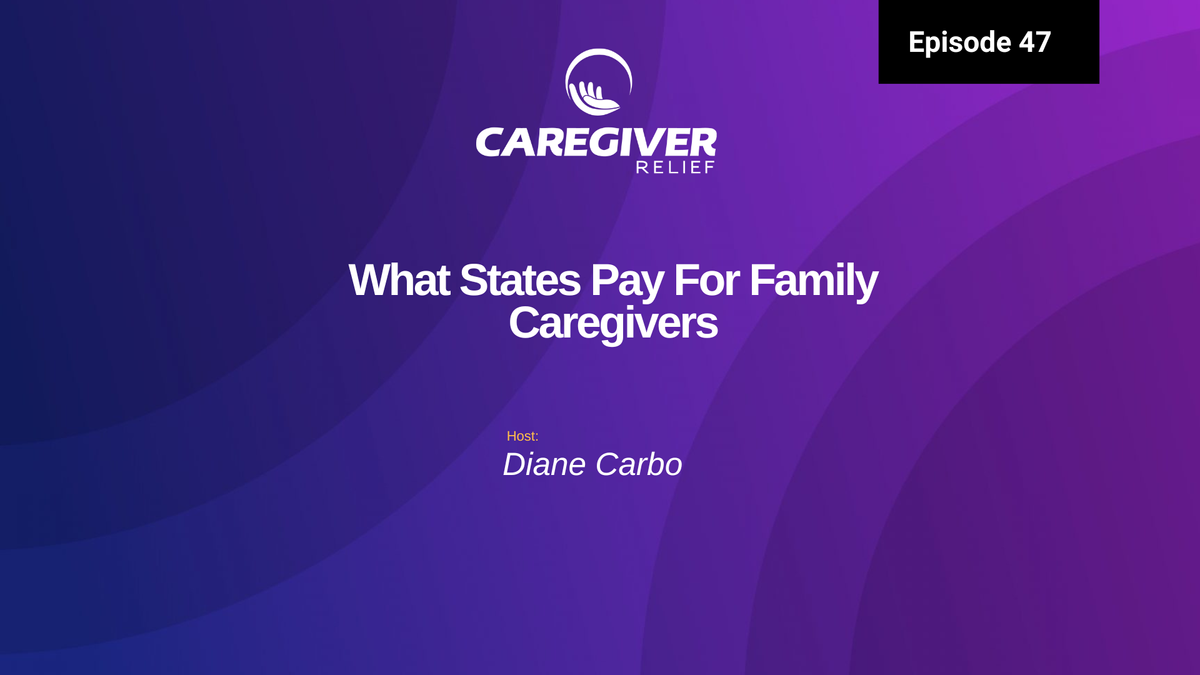Family Caregiver Contract Helps Family Caregiver Get Paid
Putting a family caregiver contract in place allows a family member to get paid for providing care. This is important as many family caregivers end up at or below poverty level when their caregiving journey ends.

A family caregiver contract, also known as a personal care agreement or caregiver agreement, is a written agreement between a family member who provides care to a loved one and the care recipient. This formal contract outlines expectations and responsibilities, helping to avoid conflicts, ensure clarity regarding compensation, and support processes related to Medicaid compliance and eligibility.
What is a Family Caregiver Contract?
A family caregiver contract, also known as a personal care agreement, is a written agreement between a family member who provides care to a loved one and the care recipient. This contract outlines the terms of care, compensation, and responsibilities of both parties. It is a legally binding document that helps to clarify the expectations and obligations of the caregiver and the care recipient, ensuring that both parties are on the same page. By having a personal care agreement in place, the family caregiver can provide personal care with a clear understanding of their role, while the care recipient can feel secure knowing their needs will be met.
Benefits and Importance of a Family Caregiver Contract
A family caregiver contract offers numerous benefits and is crucial for both the caregiver and the care recipient. Some of the key benefits include:
- Clear Understanding of Responsibilities: The contract provides a detailed outline of the caregiver’s duties, ensuring there is no confusion about what is expected.
- Fair Compensation: It ensures that the family caregiver is fairly compensated for their services, which can help alleviate financial stress.
- Prevents Conflicts: By clearly defining roles and responsibilities, the contract helps to prevent misunderstandings and conflicts among family members.
- Security for the Care Recipient: The care recipient gains peace of mind knowing that their care needs are formally recognized and will be met.
- Medicaid Eligibility: A well-drafted caregiver contract can help the care recipient qualify for Medicaid eligibility purposes by appropriately managing their income and assets.
- Tax Benefits: The caregiver may be eligible for various tax benefits, making the caregiving arrangement more financially viable.
Is A Personal Care Agreement Necessary When Caring For a Parent At Home?
Putting a family caregiver contract in place allows a family member to get paid for providing care. This is important as many family caregivers end up at or below poverty level when their caregiving journey ends.
Many are investigating ways to implement a family caregiver contract. Aging baby boomers are caring for their older parents... and planning to spend their own later years in their home and community.
Finding the right caregiver needed can be difficult. Many older seniors do not want or feel comfortable relying on strangers.
The aging population is rising and the need for caregivers may not meet the demands or needs.
Family members provide the majority of care for the older seniors in their lives. It is at great personal and financial expense. With the change in the economy... many family members are exploring the option for getting paid for caring for their aging senior.
This can help the care giver with any financial loss they may incur with their care giving duties. The older senior also benefits from having a trusted family member provide care for them.
Developing a contact can help an older senior remain in their home. As well as protect the assets from nursing home costs. Many family members provide care on an informal basis and do not need or expect payment. Other family members make great sacrifices. And would benefit from receiving payment. However modest it may be.
Key Components of a Family Caregiver Contract
A comprehensive family caregiver contract should include the following key components:
- Description of Responsibilities: Clearly outline the caregiver’s duties and the services they will provide.
- Payment Schedule and Amount: Specify how much the caregiver will be paid and the payment schedule.
- Care Recipient’s Needs: Detail the specific needs and requirements of the care recipient.
- Financial Management Plan: Include a plan for managing the care recipient’s finances and assets, such as paying bills and balancing checkbooks.
- Reimbursement for Expenses: Outline how the caregiver will be reimbursed for their time and any expenses incurred.
- Termination Clause: Provide a provision for terminating the contract, detailing the conditions under which it can be ended.
Family Caregiver Contract and Medicaid
A family caregiver contract can play a crucial role in helping the care recipient qualify for Medicaid eligibility purposes. Medicaid is a government program that provides financial assistance to individuals who are unable to pay for their medical expenses. To qualify for Medicaid, the care recipient must meet certain income and asset requirements. By having a caregiver contract in place, the care recipient can appropriately manage their income and assets, potentially making them eligible for Medicaid. This can be particularly beneficial in ensuring that the care recipient receives the necessary medical care without depleting their financial resources.
Tax Implications for Family Caregivers
As a family caregiver, you may be eligible for various tax benefits and deductions. The tax implications of a family caregiver contract can be complex, so it is recommended that you consult with a tax professional or elder law attorney to ensure you are taking full advantage of available tax benefits. Some tax considerations include:
- Lump Sum Payment or Periodic Payments: The caregiver may receive a lump sum payment or periodic payments, which can have different tax implications.
- Tax Deductions: Caregivers may be eligible for tax deductions for expenses related to caregiving, such as medical expenses and home modifications.
- Tax Credits: There may be tax credits available for caregiving expenses, which can reduce the caregiver’s tax liability.
- Employment Taxes: Caregivers may be subject to employment taxes and other tax obligations, depending on the nature of the caregiving arrangement.
By understanding these tax implications and seeking professional advice, family caregivers can better manage their financial responsibilities and benefits.
To put in a family care giver contract in place it is important to consult an elder law attorney:
Plan for the future and get the proper legal paperwork in order. Read about that here.
Consult an elder care law attorney
It is important to note… you cannot develop a family care giver contract for services already provided. In other words, you cannot be paid for services to protect the present assets. There are very strict rules and regulations that must be followed. Having the proper paperwork in order … will reduce and prevent unnecessary care giver stress in the future.
A formalized contract should be very specific… about the responsibilities of the caregiver and the expectations of the care recipient.
Consulting elder law attorneys is crucial as they can help ensure that the family caregiver contract is legally sound and meets all necessary requirements. The attorney can help the family approach this in a business-like manner. In doing so, all parties involved will have a clear understanding of the quality of care and the costs for the care.
Keeping family members informed
Having a family contract in place, will also allow those family members that do not want to or are unable to provide care, aware of how the finances are being handled.
For the family member that provides a majority of the care, it can decrease the feelings of resentment, frustration and anger that often build up with uninvolved siblings and extended family members. The family care giver that takes on the majority of the responsibility can benefit from the long and tedious hours they provide care.
When it comes to money and how the assets of the aging senior are being spent, families become unraveled. Jealousy and anger are not uncommon for family caregivers to endure.
Having a formalized care giver contract can allow the aging senior to utilize their assets to remain at home, receive quality care and financially reward the individual that is providing that care. This can provide the family caregiver with protection should the other family members pursue legal action after the aging senior is deceased. It is unfortunate, but it does happen more often than you think.
Identify future care needs
This is not an easy thing to accept, but as we age, our needs for care change. Many older seniors have a slow decline. It is important that when pursuing a written contract that you talk with the doctor about the aging senior and have an open and honest discussion about their future health care needs. You may also want to consult with a geriatric care manager to help navigate complex caregiving situations and plan for future care needs.
When developing the family caregiver contract, identify what you, as a care giver will be able to provide and able to handle. You must be able to say, “I cannot take care of you when you reach this point.”
This will give the aging senior a clear understanding of what they can expect from you when providing care.
It will also prepare them for a time when they may have to be admitted to a nursing home. It is also important to note here, that there may come a time when you, the caregiver, will agree to oversee the care and hire outside caregivers, to provide the care you cannot, to keep the aging senior at home.
You can put this into the contract and make it an option for the future.
Consider the “care giver” role as a job. When developing a formal contract, it is important to consider things that you would consider in a job outside the home.
You will need to determine an hourly rate or a salary amount. Many long term care insurance providers do a yearly report on the costs of services for home care aides in each state. Investigate the costs of services you will provide by searching on the web for the long term care study report for the year you are going to be providing services. Ensure that the payment rates reflect the fair market value for caregiving services in your area to comply with Medicaid regulations. Both Met Life and Genworth companies publish yearly reports.
Care giver stress can be avoided by taking breaks and allowing time for the care giver to rejuvenate. It is important to include in the contract how time off will be handled and who will provide care during that time.
It is important to determine how you as an aging baby boomer and senior caregiver are paid and who will be writing the checks. Consulting how taxes will be paid is another step in this process you should explore prior to implementing the contract. A family caregiver contract can also be established with a private caregiver, providing flexibility in who can be involved in the caregiving arrangement.
We are living longer and healthier than ever before.
Providing care for an older senior can last from a few months to a few years. Taking the steps to prepare and plan ahead are the keys to success for today’s aging baby boomers.









